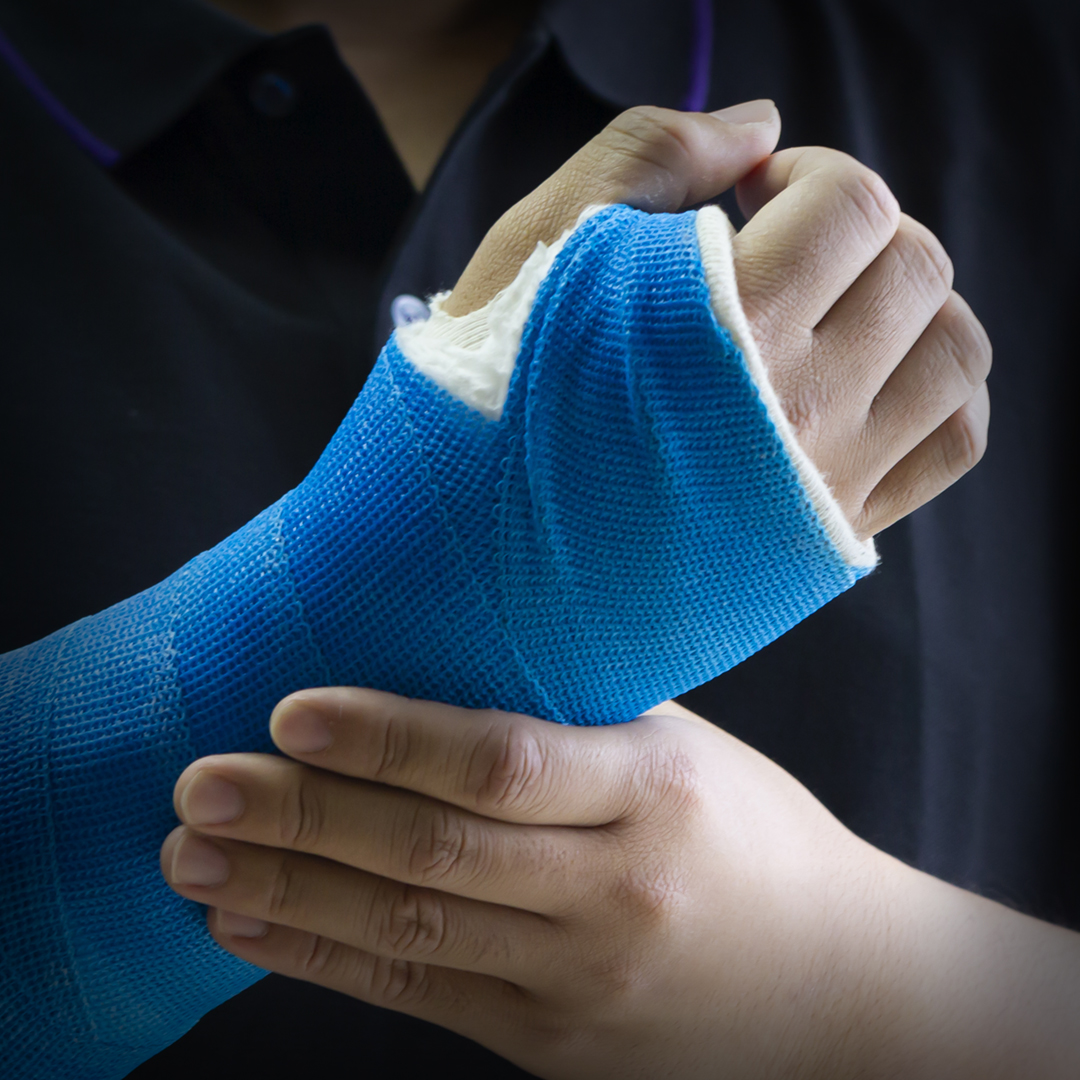Fractures and Trauma
Fractures, dislocations and severe overuse injuries require a Position Of Safe Immobilisation (POSI) to allow for healing to take place most effectively.
It is important to immobilise the region appropriately to allow for treatment and rehabilitation to be unrestricted when the time comes to take off the splint or cast. After it has been decided that it is time to remove your aid, rehabilitation to restore loss of range of motion, muscle size (atrophy) and strength, flexibility, proprioception and function is vital.
Application and removal of casts are done on premises.

USEFUL TIPS FOR CAST MANAGEMENT
Positioning
When possible, keep the affected limb raised on a soft surface such as a pillow for the first few days, this will allow initial swelling to reduce and prevent the cast becoming tight and allow it to completely set.
Try not to let the limb hand down for long periods of time as this can increase swelling.
Cast Care
- Do not get the plaster wet or dirty. This will weaken it and affect the healing of the wounds within – if any .
- Cover the cast in a plastic bag when showering.
- Do not allow it to become wet. DO NOT cut the cast at home, or attempt to remove it.
Possible complications
Contact your physiotherapist on 8970 6111 Monday to Friday if you have any of the following;
- Coldness of the fingers/toes or a change of colour to white/blue which is different to the non-casted limb despite continued elevation.
- Pins and needles or numbness
- Increase in pain which does not settle with basic pain killers
- If you are unable to move your fingers to toes If the fingers/toes or affected limb become swollen despite continued elevation
- If your cast gets broken, wet, tight or loose
- The skin underneath or around the cast becomes sore.
- If you get an object stuck inside
- If there is an unpleasant smell or oozing from the cast as this may suggest an infection Occasionally an allergic reaction or pressure sore can occur, due to the materials used.
- Look for a rash, swelling, excessive itching, an unpleasant small, painful rubbing or discomfort
If any of the above occur outside of our office hours please attend your nearest emergency department.
Skin Care
- Casts can become itchy, as casts can create a sweaty environment.
- Do not push anything in the cast to scratch with. This can cause skin damage, resulting in infections or pressure sores.
Movement is important
- Exercise the joints that are not covered by the cast, such as elbow, knee, fingers or toes. Do this often to help maintain circulation, and reduce stiffness.
- It is important not to partake in any physical activities until instructed by your surgeon or specialist.
Pain
- Take pain killers when needed. Please follow pharmacy instructions for the administration of any medication.
